Key Takeaways for Credentialing Professionals
- Streamline credentialing timelines to prevent out-of-network reimbursement issues.
- Keep provider directories updated every 90 days to meet compliance standards.
- Implement provisional credentialing to support care continuity and billing accuracy.
- Enhance coordination between payers and providers to align efforts with NSA mandates.
As the healthcare industry adapts to the No Surprises Act, Credentialing is a critical component of compliance, care access, and financial stability. Staying ahead of these requirements will protect both your organization and the patients you serve.
The No Surprises Act (NSA) is best known for protecting patients from unexpected medical bills. But its influence goes beyond billing particularly when it comes to payer credentialing processes. From provider directory accuracy to timely credentialing and reimbursement, the NSA has brought new expectations for how health plans manage provider data and network participation.
Here’s what credentialing professionals need to know:
What, credentialing has a role in No Surprises Act compliance?
1. Provider Directory Accuracy & Maintenance
One of the core elements of the NSA is ensuring that patients have access to accurate information about their providers. To support this:
- Insurers must update provider directories at least every 90 days.
- Providers are responsible for submitting updated information within the same timeframe.
Isn’t it the payer’s responsibility to maintain accuracy?
Failure to keep this information current can result in noncompliance, especially if patients are misled into thinking a provider is in-network due to outdated listings. Credentialing delays can exacerbate this issue by keeping provider status in limbo, increasing the risk of erroneous listings.
2. Timely Credentialing & Provisional Status
The NSA indirectly puts pressure on payers to streamline credentialing processes. Why? Because delays can lead to billing errors or incorrect network information both of which the Act seeks to eliminate. To keep up, some payers have begun offering temporary or provisional credentialing to prevent service disruptions while ensuring compliance.
3. Reimbursement Challenges for Out-of-Network Providers
Credentialing delays don’t just affect network status they can also impact reimbursement. Under the NSA:
- Disputes over out-of-network payments are handled through Independent Dispute Resolution (IDR).
- Claims from uncredentialed providers may be reimbursed at the median in-network rate, potentially reducing payment.
This makes timely credentialing not just a compliance concern, but a financial one as well.
4. Continuity of Care Requirements
Credentialing is directly linked to patient care, the Act says so!
The NSA includes protections for patients in active treatment when a provider transitions in or out of a network. That means:
- Insurers must allow continuity of care for specific scenarios, such as pregnancy, serious illness, or post-surgery follow-ups.
- This may require coverage for services from uncredentialed or transitioning providers, under clearly defined conditions.
Credentialing teams must be aware of these requirements to ensure affected patients continue receiving care without disruption.
5. Compliance & Penalties
The NSA isn’t just a set of guidelines—it comes with real consequences. Both payers and providers may face penalties for noncompliance, particularly when:
- Provider directories are outdated or inaccurate
- Delays in credentialing lead to incorrect network listings
These scenarios could result in fines or legal challenges, emphasizing the need for robust credentialing workflows and communication.
Penalties for not complying with the No Surprises Act provider directory
Providers and health plans who fail to comply with the various provider directory requirements under the No Surprises Act may face heavy penalties.
- Providers who neglect to comply with the provisions of the law could receive a penalty of up to $10,000 per violation.
- Health plans could be fined up to $100 per day per individual affected by a violation.
- The No Surprises Act addresses this issue by providing for refund and cost-sharing processes for bills from out-of-network providers due to reliance on inaccurate directory information.

